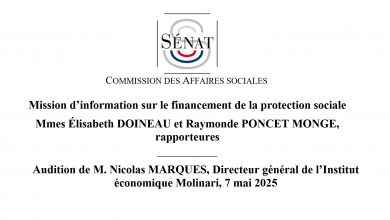Why impose the sale of computers without software?
Article published exclusively on the Institut économique Molinari’s website.
Computers are generally sold to the public equipped, in a form of « tied selling, » with an operating system and certain preinstalled software essential for their use. But pressure exists in some European countries to impose « separate selling. » Taking this approach will be a source of uncertainty and waste, carried out on the backs of most other consumers.
Computers are generally sold to the public equipped, in a form of « tied selling, » with an operating system and certain preinstalled software essential for their use. But pressure exists in some European countries to impose « separate selling. » France appears to have given in to this pressure: the government wants to establish a mandatory measure allowing for a computer to be purchased « naked, » in other words, without software and with the price, say, of the operating system reimbursed. Seeking to provide such a « right » is politically attractive, but it is not an example worth following. Taking this « forced selling » approach will be a source of uncertainty and waste, carried out on the backs of most consumers.
First, it is incorrect to claim that it is impossible to purchase a computer without preinstalled software. Computer buffs already have the opportunity to obtain « naked » computers. There are companies specialising in this very specific niche to meet existing demand. If demand truly arose among the broader public, manufacturers and distributors themselves would gladly meet it so as to gain market share. It is thus useless to force their hands!
Second, it is worth recalling the failed launch of Windows N without Media Player. Its commercial sale had been imposed by the European Commission in 2005, with Brussels also seeking at the time to challenge « tied selling » with a view to favouring consumers. But the resources needed to provide offers that consumers did not want were wasted instead of going toward innovating more and launching new products more quickly, which could meet needs more effectively. Do we want to see the same error repeated?
Finally, this sort of intervention really aims to substitute public authorities for market players in deciding what should be sold and how it should be done. And it disregards the economic reason for « tied selling » and the absence of separate selling of some products on the market.
Is a reminder needed that, when a manufacturer commercialises a product, costs are created in terms of coordination, advertising, storage and selling space, labour, warrantee and product refund conditions, etc.? The fact that not all possible or imaginable offers are available on the market does not mean the market is flawed. Rather, it is precisely because demand from buyers willing to pay all these costs is seen as insufficient in certain cases that manufacturers and distributors are not rushing to meet it. If tinkerers find it hard to buy a new Toyota with no motor or brakes, this does not mean legislation is needed!
Why commit a whole series of expenses to put « naked » computers on the market if the intended consumers can simply take it on themselves? If specialised companies can make such computers available to connoisseurs, it seems economically unjustified to offer them to the general public and even less justified to force them to be sold.
Seeking to impose unprofitable commercial offers by law, as France is preparing to do, ends up raising uncertainty with regard to the manufacturers’ and distributors’ economic model. This will inevitably affect the cost of products already being sold—in this case, computers with Windows and equipped with the software needed for their use. It means consumers will have to pay more, in some form or other. If governments truly value consumers’ interests, they should let the market decide what should or should not be sold and abstain from intervening!
Valentin Petkantchin, Director of Research, Institut économique Molinari





